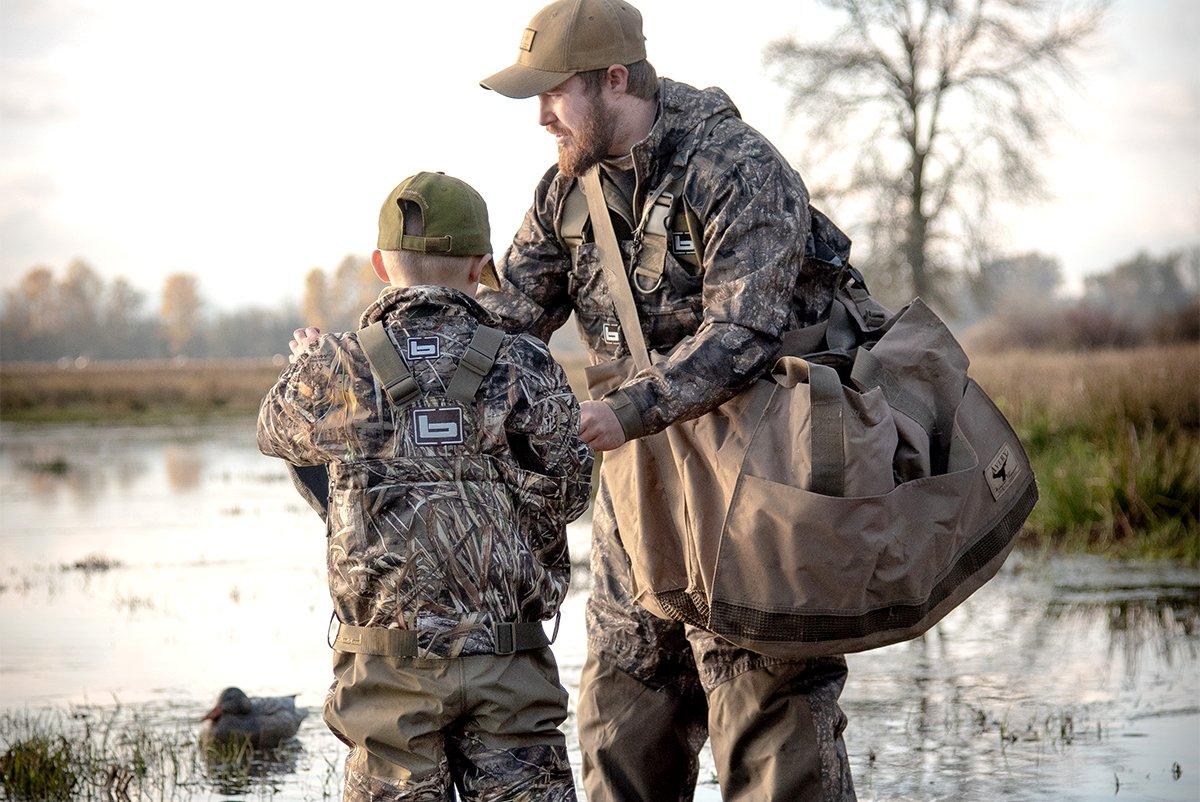Bringing newbies into the fold can be tough. Learn how to provide a great first experience
Waterfowling scribes harp a lot about introducing newcomers to the sport, but we often forget to mention that there's no instruction manual for being a good mentor.
Some might say that's silly, as the main responsibility of any mentor is simply offering someone a chance. True, but a good teacher would retort that everyone learns differently, and factors that motivate one student might disinterest another. So how do you become an effective mentor? Here are some thoughts.
Accentuate the Positive
Keeping hunting fun is one of the main tenets of mentoring new waterfowlers. That's great, but it needs to go deeper. Often, newbies — children and adults — enjoy some aspects of hunting more than others. Expose them to the spectrum of duck hunting, but recognize facets of the game that make them light up. Many neophytes like waterfowling because it's relatively action-packed compared to other forms of hunting. If so, try to promote that, even if it means shooting coots or shovelers. Other newcomers gravitate toward dog work, and some — especially young adults — like the culinary benefits of killing wild ducks. Let them find their niche, and then help them along that path.
Intrigue, But Don't Overdo
New duck hunters love to hear stories of success and adventure from seasoned veterans — to a point. When the yarns start to run together, newbies might roll their eyes at yet another tale and wonder whether their mentor is a pathological liar.
Often, it's best to share stories when a new hunter asks a question. For example, your charge might ask if you've ever had success hunting mallards in dry fields. Then you can share the tale of shivering in a field blind while tornadoes of greenheads whirled above you in a prairie sky. Such stories open up worlds of imagination and excitement for new hunters, and they'll probably want to experience similar adventures of their own.
Lead By Example
You might not realize it, but new hunters constantly observe veterans and watch how they act. I did when I was young. Spending a morning in a blind with local legends was like attending a graduate-level course, and I watched intently how the older hunters set decoys, handled their dogs, called the shot and ran a hunt.
When hunting with an impressionable newbie, act like the duck hunter you'd like your charge to become. Be enthusiastic, work hard and hunt smart. Be social and interactive in the blind. Moreover, promote and enjoy the success of others, and don't pout when things go sideways. Newbies will learn soon enough that slow days and bad luck are part of duck hunting, but you can show them that shouldn't affect their enjoyment of the sport.
Share Skills
Duck hunting demands unique skills, and newbies often love learning about these. As a young man, I was fascinated by the skill sets of older hunters, wondering how they became so good at so many hunting-related activities. I quickly realized, however, that many old-timers didn't share those secrets unless I asked.
Without being overbearing, share what you know about calling, shooting, boating, cleaning birds, rigging decoys, identifying ducks, staying concealed or even tying knots. Offer suggestions when appropriate, and remember to be patient, as new hunters often won't become crack shots or smooth boat handlers overnight.
Be Present to Win
OK, this is no secret: The No. 1 job requirement for a mentor is to show up. Let a youngster know you're available to hunt when he has a break from school. Offer to take inexperienced hunters even if it means you won't get many ducks. Always be there when newbies have questions or need advice.
Sometimes, that's inconvenient, but remember why you're doing it. You're passing along gifts that were given to you years ago, and if that lights the spark that creates another passionate waterfowler, you've done great work.
Click here for more Realtree waterfowl hunting content. And check us out on Facebook.









